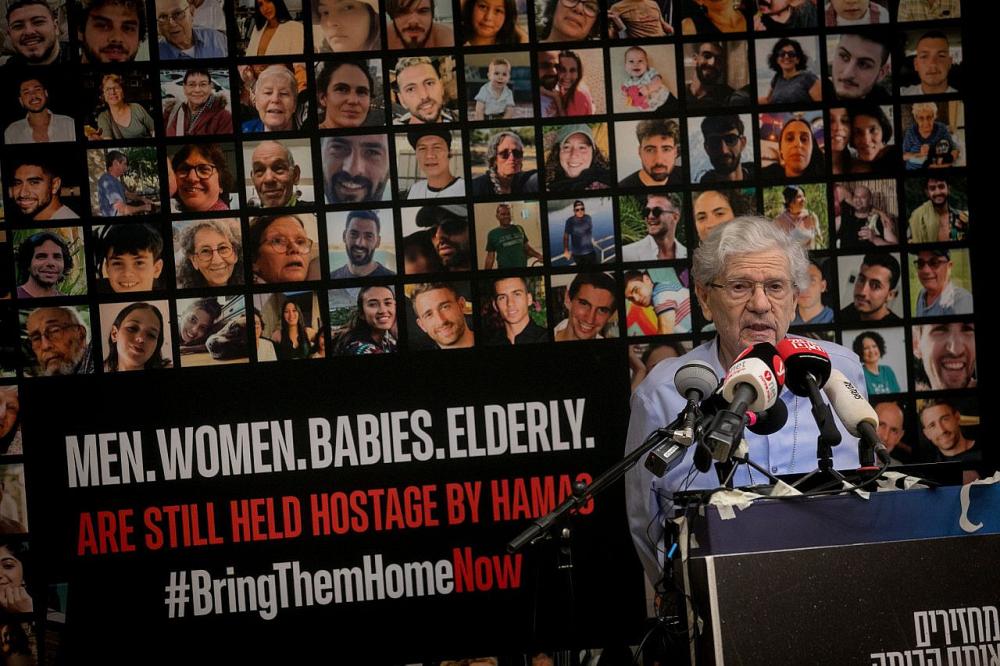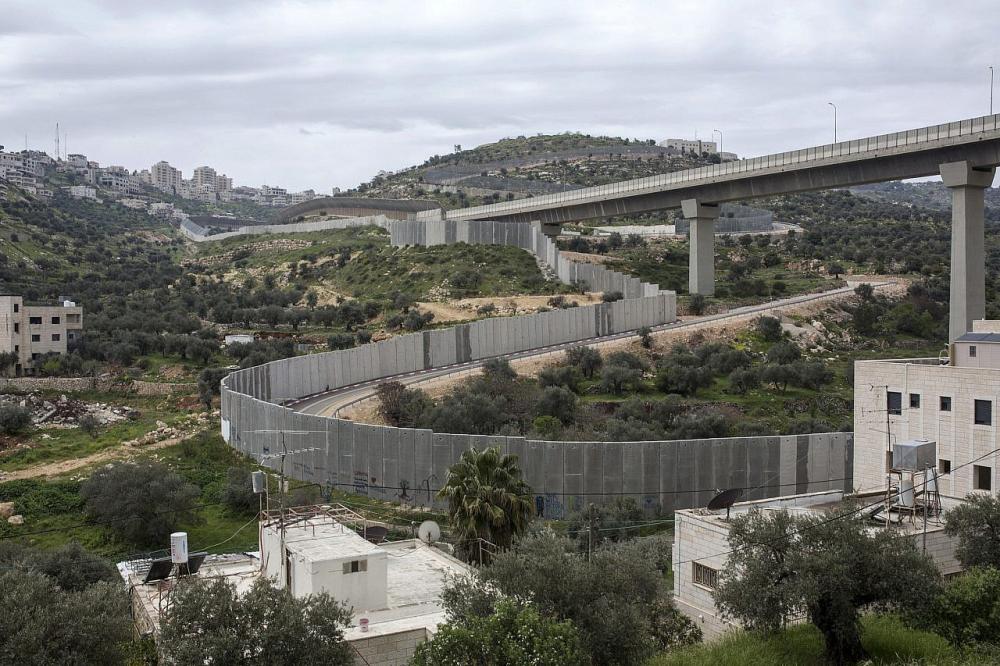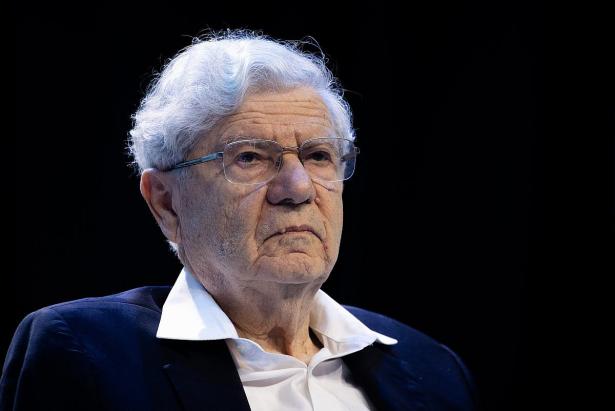The announcement that Israel has chosen Aharon Barak, the renowned former Supreme Court President, to join the International Court of Justice (ICJ) as it judges a landmark case charging Israel with genocide has sent the country into a tizzy. Barak will be Israel’s representative on a panel that is hastily being convened to discuss South Africa’s petition for an emergency suspension of Israel’s assault on the Gaza Strip — a panel that will consist of the ICJ’s 15 permanent judges plus one from Israel and one from South Africa.

Barak has long been reviled by the Israeli right for having enshrined various liberal principles in the state’s quasi-constitution during his tenure as Supreme Court president from 1995-2006. His fans, meanwhile, are struggling to contain their excitement. “The most appropriate stamp of approval. Israel has no one to rely on except Aharon Barak,” Yossi Verter, a commentator for Haaretz, remarked. The Movement for Quality Government in Israel similarly declared: “Justice Barak is one of the greatest jurists to have arisen in the State of Israel, and his appointment to the position is a requisite.”
On the face of it, Barak is a puzzling choice from a far-right government that has spent the past year trying to dismantle much of what he stood for. Indeed, according to Israeli media reports, Barak was not even Netanyahu’s first choice for the job, which is unsurprising given their history of bad blood.
Yet it’s hard to think of a person better suited for the role. Not because of Barak’s legal prowess, nor the international reputation he has built for himself, nor even the fact he is a Holocaust survivor — which did not go unnoticed by those who sent him to The Hague.

Former Supreme Court President Barak speaks at a press conference held on November 3, 2023, with families whose loved ones were kidnapped by Hamas on October 7. (Miriam Alster/FLASH90)
Rather, Barak’s new role actually continues the mission to which he has devoted his entire professional life: legitimizing the majority of Israel’s crimes, while simultaneously defending the façade of “Israeli democracy.” Barak, after all, is one of the most significant authors of the legal doctrine that Israel can claim to be a democracy while maintaining an endless military occupation and systematically depriving the Palestinians of their rights, dignity, land, and property.
On the one hand, the Israeli judicial system under Barak’s stewardship greatly expanded the boundaries of its own authority. On the other, the court almost always stood beside the positions of Israel’s security establishment. In Barak’s own words: “All matters of the West Bank and Gaza are justiciable [i.e. can be handled within the Israeli judicial system]. Military affairs in the territories are justiciable. Whether to shut off electricity in Gaza — justiciable. Why? Because there is international law. If shutting off electricity in Gaza is not justiciable here, it will be justiciable in The Hague. This is the case in this matter and likewise in the matter of the settlements.”
Now, Barak is discovering that the legal armor he worked so hard to provide for Israel’s crimes may not be enough — and he himself will now have to fight for it in The Hague.
The mirage of that legal doctrine was made possible by two of the concepts with which Barak is most strongly identified: everything is justiciable, and proportionality. For example, under his leadership, the Supreme Court legalized the separation barrier in the occupied territories, but “balanced” the decision, in the name of sacred proportionality, by ruling that its route must be altered so as not to cut off a handful of Palestinian villages from the rest of the West Bank.

A section of the Israeli separation wall that annexes land of the Bethlehem and Jerusalem districts, Beit Jala, occupied West Bank, April 6, 2019. (Anne Paq/Activestills)
Similarly, Barak made sure to present the Supreme Court’s ruling on Jami’at Iscan — which allowed the Israeli army to expropriate Palestinian land for the construction of highways in the West Bank — as if it were intended to serve the residents under occupation, arguing that “long-term military rule could lead to a stagnation in the development of the local population and the region.”
While he found punitive demolitions of Palestinian homes “inappropriate” and useless, he decided that as a judge he had no discretion in the matter, and did not act to stop the policy. This approach culminated in Barak’s final ruling, which in effect legalized the army’s policy of “targeted killings” — that is, extrajudicial executions — but with a caveat that “restrictions and limitations must be outlined for the targeted killings, so that each case is examined on its own.”
In response to this decision, legal scholar Suzie Navot wrote: “Supposedly, the ruling will make it difficult to target terrorists … But this is only supposedly. Because in practice, even today, the security forces make decisions on targeted killings based on considerations similar to those set forth in the verdict. Presumably, reality won’t change much.”
With these words, Navot put her finger — supportively — on Barak’s dual mirage, whose essence and purpose she explains as follows: “The ruling on targeted killings was not written only for the army. It is perhaps one of the most important legal documents written in Israel from a hasbara [public relations] perspective. It is essentially similar to other rulings written by Aharon Barak, especially with regard to the separation barrier. Judgments aimed outward — for the international community, which scrutinizes Israel’s actions in the territories. The final flourish of former President Barak constitutes a sensitive statement of defense of Israel’s impossible situation and its constant war on terror.”
It turns out that wasn’t the judge’s final flourish after all. The 87-year-old has volunteered to don the cloak of Dr. Jekyll to legitimize the crimes of Mr. Hyde — one body in the service of Israeli hasbara — one more time.
This article first appeared in Hebrew on Local Call. Read it here.
Orly Noy is an editor at Local Call, a political activist, and a translator of Farsi poetry and prose. She is the chair of B’Tselem’s executive board and an activist with the Balad political party. Her writing deals with the lines that intersect and define her identity as Mizrahi, a female leftist, a woman, a temporary migrant living inside a perpetual immigrant, and the constant dialogue between them.
Our team at +972 has been devastated by the horrific events of this latest war – the atrocities committed by Hamas in Israel and the massive retaliatory Israeli attacks on Gaza. Our hearts are with all the people and communities facing violence.
We are in an extraordinarily dangerous era in Israel-Palestine. The bloodshed unleashed by these events has reached extreme levels of brutality and threatens to engulf the entire region. Hamas’ murderous assault in southern Israel has devastated and shocked the country to its core. Israel’s retaliatory bombing of Gaza is wreaking destruction on the already besieged strip and killing a ballooning number of civilians. Emboldened settlers in the West Bank, backed by the army, are seizing the opportunity to escalate their attacks on Palestinians.
This escalation has a very clear context, one that +972 has spent the past 13 years covering: Israeli society’s growing racism and militarism, the entrenched occupation, and an increasingly normalized siege on Gaza.
We are well positioned to cover this perilous moment – but we need your help to do it. This terrible period will challenge the humanity of all of those working for a better future in this land. Palestinians and Israelis are already organizing and strategizing to put up the fight of their lives.
Can we count on your support? +972 Magazine is the leading media voice of this movement, a desperately needed platform where Palestinian and Israeli journalists and activists can report on and analyze what is happening, guided by humanism, equality, and justice. Join us.


Spread the word